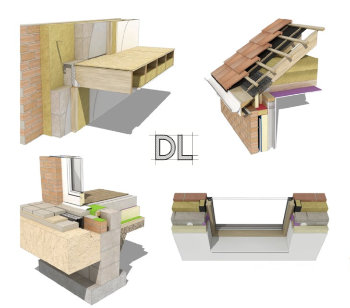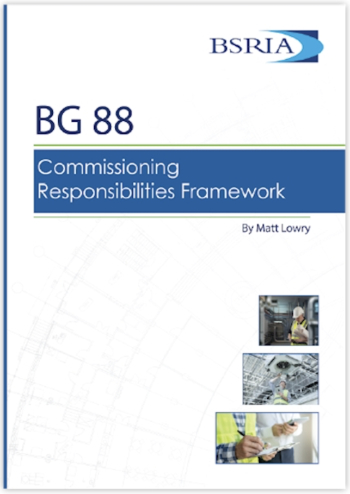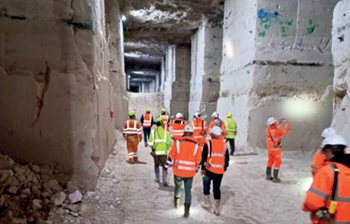Global BACS Market: analytics and optimisation
The global Building Automation and Control Systems (BACS) product market grew by nearly 6% in 2023 to reach USD 7.1 billion. However, the market continues to show wide variations between individual countries, even within the same region. In some cases, price increases and currency fluctuations further distort the pattern.
A common feature of all the markets, however, is the exceptional demand for products that facilitate building analysis and optimisation, and this is outpacing demand for more “traditional” elements of the BACS. This manifests itself principally in demand for software and sensors.
Software is leading growth, while data and analytics become more important, and increasingly cloud-based. The Analytics & Energy Efficiency / BEMS software market is forecast to achieve 10.7% CAGR up to 2028. Whilst still in its infancy where BACS is concerned, initial steps have been taken with Artificial Intelligence (AI) and Machine Learning (ML), with examples that include predictive maintenance and building occupancy analysis.
This software needs inputs to work with, and so there has also been a rapid demand for sensors in recent years, and ever more manufacturers are offering multi-criteria sensors that capture a range of building variables, such as temperature, humidity, occupancy and air quality.
The trend is towards more open and connected systems, with more devices becoming Internet Protocol (IP) enabled, and capable of supporting a variety of industry-standard open communication protocols. At the same time, manufacturers are addressing cybersecurity from initial product conception, through design, manufacture and implementation.
Global conflicts have raised the threat to energy security and pushed-up prices, which has encouraged building owners to invest in systems to improve building performance including BACS, although high inflation and high interest rates have held back the new-build market in some countries. Governments, especially in Europe and North America have been legislating to encourage greater efficiency, and this is also encouraging more concentration on the refurbishment market and greater deployment of BACS in smaller buildings. Nevertheless, a serious shortage of skilled labour is hampering market development and increasing costs in some of the wealthier countries.
Many of these trends were evident at the recent Light+Building trade show in Frankfurt, Germany. There is a clear move towards sustainability, in all its forms. From products made from recycled materials, to “eco” marking with certification of products through their entire lifetime, including factors such as manufacture solely with renewable energy, as well as end-of-life take-back and disassembly. Other innovations include operational data-based forecasting of when individual buildings, or building portfolios will reach zero-carbon emissions, based on planned renovations and usage, and to estimate whether this will achieve goals such as the 2050 net zero target in the European Union.
The western world has a large stock of old, energy-inefficient buildings, and there was an increasing array of new and innovative product ranges on display at Light+Building which include novel energy-saving techniques to retrofit homes and non-residential buildings.
To order the country reports or global world overview data, please contact your regional sales team.
www.bsria.co.uk, www.bsria.com.cn, www.bsria.com.
This article appears on the BSRIA news and blog site as 'Global BACS Market - Exceptional demand for analytics and optimisation' dated April 2024 and was written by Jeremy Towler, BSRIA Senior Market Intelligence Consultant.
--BSRIA
[edit] Related articles on Designing Buildings
- Air conditioning.
- Artificial intelligence in buildings.
- BACS building automation controls - the information revolution.
- BS EN 15232 Energy performance of buildings: impact of building automation, controls and building management.
- BSRIA study shows uptake of convergence and IoT in commercial buildings.
- BSRIA study: The market for European Field Devices.
- BSRIA World Building Automation and Control Systems 2022.
- Building Automation and Control System BACS.
- Building energy efficiency - is building automation the answer?
- Building energy management systems BEMS.
- Building services.
- Commercial building automation market.
- Cyber threats to building automation and control systems.
- Edge devices.
- Energy management and building controls.
- Global BACS market resilience.
- Global building energy management systems market.
- HVAC.
- Internet of things.
- Internet of things in commercial buildings.
- Mechanical, electrical and plumbing MEP.
- Parking reservation systems.
- Plant room.
- Smart buildings.
- Wireless vs wired building energy management system.
Featured articles and news
From studies, to books to a new project, with founder Emma Walshaw.
Types of drawings for building design
Still one of the most popular articles the A-Z of drawings.
Who, or What Does the Building Safety Act Apply To?
From compliance to competence in brief.
The remarkable story of a Highland architect.
Commissioning Responsibilities Framework BG 88/2025
BSRIA guidance on establishing clear roles and responsibilities for commissioning tasks.
An architectural movement to love or hate.
Don’t take British stone for granted
It won’t survive on supplying the heritage sector alone.
The Constructing Excellence Value Toolkit
Driving value-based decision making in construction.
Meet CIOB event in Northern Ireland
Inspiring the next generation of construction talent.
Reasons for using MVHR systems
6 reasons for a whole-house approach to ventilation.
Supplementary Planning Documents, a reminder
As used by the City of London to introduce a Retrofit first policy.
The what, how, why and when of deposit return schemes
Circular economy steps for plastic bottles and cans in England and Northern Ireland draws.
Join forces and share Building Safety knowledge in 2025
Why and how to contribute to the Building Safety Wiki.
Reporting on Payment Practices and Performance Regs
Approved amendment coming into effect 1 March 2025.
A new CIOB TIS on discharging CDM 2015 duties
Practical steps that can be undertaken in the Management of Contractors to discharge the relevant CDM 2015 duties.
Planning for homes by transport hubs
Next steps for infrastructure following the updated NPPF.

























